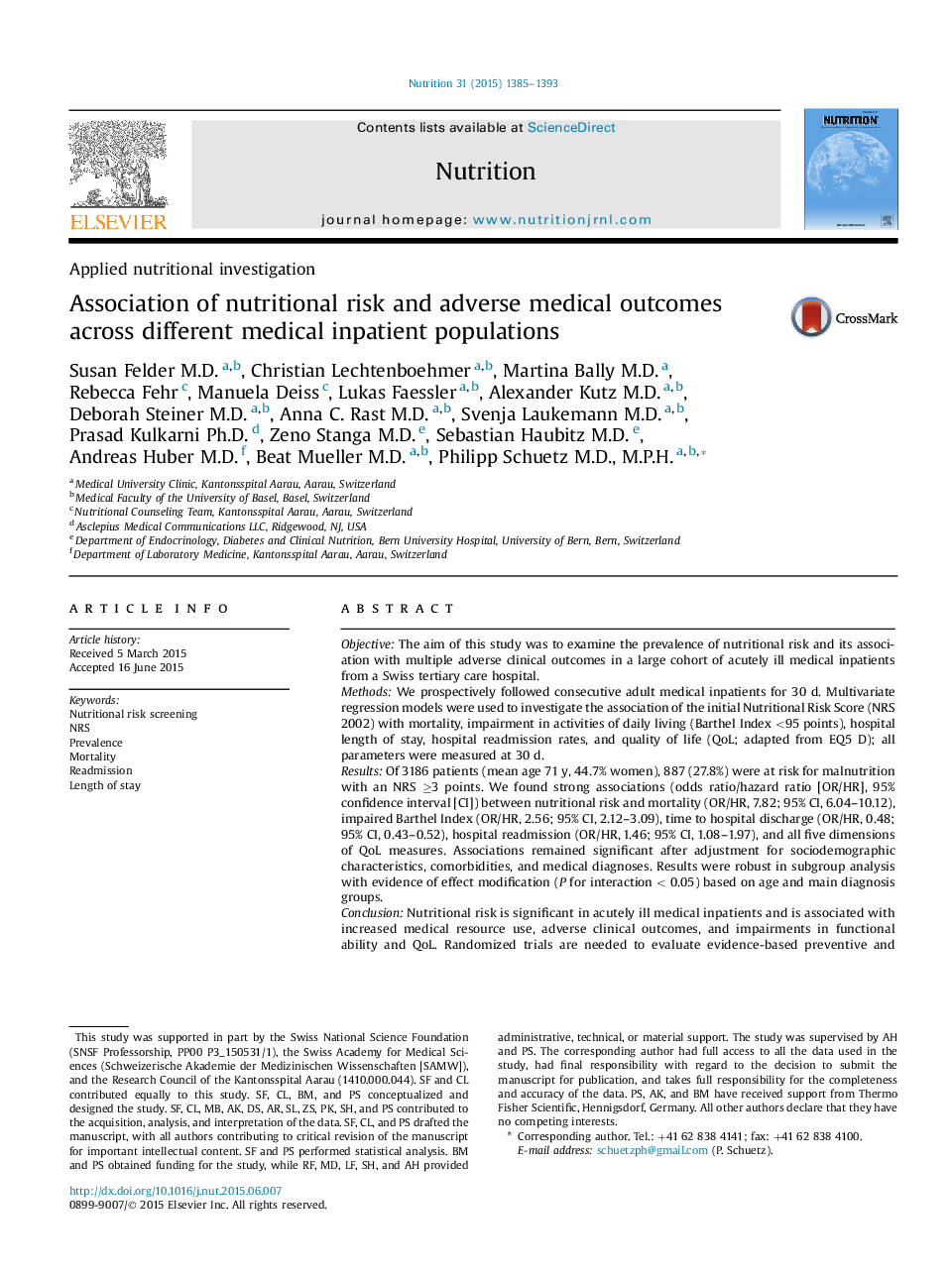| کد مقاله | کد نشریه | سال انتشار | مقاله انگلیسی | نسخه تمام متن |
|---|---|---|---|---|
| 3276277 | 1589667 | 2015 | 9 صفحه PDF | دانلود رایگان |
• Nutritional risk is substantial in acutely ill medical inpatients, with almost 30% of this population being at risk for malnutrition.
• Nutritional risk is associated with adverse medical and functional outcomes with regard to mortality, hospital length of stay, impairments in activities of daily living and quality of life, and unplanned hospital readmissions.
• Randomized trials are currently recruiting to evaluate the benefit of nutritional interventions such as counseling and therapy.
ObjectiveThe aim of this study was to examine the prevalence of nutritional risk and its association with multiple adverse clinical outcomes in a large cohort of acutely ill medical inpatients from a Swiss tertiary care hospital.MethodsWe prospectively followed consecutive adult medical inpatients for 30 d. Multivariate regression models were used to investigate the association of the initial Nutritional Risk Score (NRS 2002) with mortality, impairment in activities of daily living (Barthel Index <95 points), hospital length of stay, hospital readmission rates, and quality of life (QoL; adapted from EQ5 D); all parameters were measured at 30 d.ResultsOf 3186 patients (mean age 71 y, 44.7% women), 887 (27.8%) were at risk for malnutrition with an NRS ≥3 points. We found strong associations (odds ratio/hazard ratio [OR/HR], 95% confidence interval [CI]) between nutritional risk and mortality (OR/HR, 7.82; 95% CI, 6.04–10.12), impaired Barthel Index (OR/HR, 2.56; 95% CI, 2.12–3.09), time to hospital discharge (OR/HR, 0.48; 95% CI, 0.43–0.52), hospital readmission (OR/HR, 1.46; 95% CI, 1.08–1.97), and all five dimensions of QoL measures. Associations remained significant after adjustment for sociodemographic characteristics, comorbidities, and medical diagnoses. Results were robust in subgroup analysis with evidence of effect modification (P for interaction < 0.05) based on age and main diagnosis groups.ConclusionNutritional risk is significant in acutely ill medical inpatients and is associated with increased medical resource use, adverse clinical outcomes, and impairments in functional ability and QoL. Randomized trials are needed to evaluate evidence-based preventive and treatment strategies focusing on nutritional factors to improve outcomes in these high-risk patients.
Journal: Nutrition - Volume 31, Issues 11–12, November–December 2015, Pages 1385–1393
